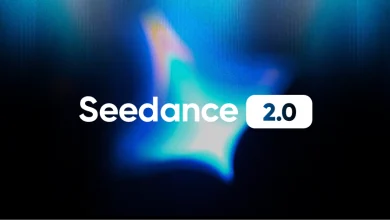
Artificial intelligence is no longer a distant idea limited to sci-fi or advanced research labs. Today, it’s rapidly reshaping the education sector—introducing new ways to learn, assess, and engage. From intelligent tutoring systems to virtual classrooms, AI is helping to personalize learning experiences like never before. Even traditional symbols of academic achievement, such as the blank graduation stole, are being reimagined through digital customization tools and AI-assisted design, allowing students to reflect their unique journey and identity.
This shift toward personalization is one of the most exciting transformations in modern education. Traditional classroom models have long followed a one-size-fits-all approach, often failing to address individual student needs. Now, AI-powered platforms are creating customized pathways for learners of all backgrounds and abilities. And it’s not just about academics—AI is influencing how students express themselves, with tools that enable creative enhancements to items like the graduation stole, turning a once-generic accessory into a powerful symbol of personal narrative and achievement.
Virtual Classrooms and Intelligent Tutors
With the rise of remote learning, AI is playing a key role in simulating classroom environments. AI-driven platforms can now mimic one-on-one tutoring sessions, assess a student’s tone or facial expressions, and adjust the conversation accordingly. Some even offer real-time language translation, making cross-border learning more inclusive.
One remarkable application is the use of intelligent chatbots as tutors. These bots can answer student questions instantly, provide feedback on assignments, and even keep learners engaged through gamified experiences.
Accessibility and Inclusivity
AI is not just for tech-savvy or privileged students. On the contrary, it’s helping bridge the educational gap by offering scalable solutions for learners with disabilities. Text-to-speech tools, real-time subtitles, and personalized interfaces are breaking down barriers that previously hindered equal access to education.
In developing nations, where quality teachers and infrastructure might be limited, AI is becoming an unexpected equalizer. Organizations like UNESCO and UNICEF are investing in AI-powered mobile learning to bring education to remote areas.
Enhancing the Graduation Experience
Even the traditional rites of passage, like graduation, are being touched by AI. Students can now design custom regalia using online tools enhanced with AI—selecting color palettes, patterns, and even emblems that reflect their educational journey.
The trend of DIY graduation accessories, like the graduation stole, has become especially popular. Students are using this blank canvas to embroider their achievements, cultural identity, or even personal messages using digital tools and embroidery AI kits. It’s more than just fashion—it’s a statement of individuality in a world that’s increasingly personalized.
Ethical Considerations and Responsible Use
While AI is bringing exciting advancements, it also demands responsibility. Questions around data privacy, bias in algorithms, and the potential loss of human connection in education are all valid. Institutions need to strike a balance between innovation and ethics.
Educational policymakers are increasingly collaborating with AI developers to create transparent systems, enforce data protection laws, and ensure fairness. AI tools in education must be developed with inclusivity and accountability in mind.
Preparing Students for an AI-Driven Future
Another transformative role of AI in education is preparing students for the AI-powered workforce. From elementary school coding camps to university-level AI ethics courses, students are being taught not just how to use AI—but how to question it, improve it, and innovate responsibly.
Career guidance tools powered by AI are also helping students make more informed decisions about their future. These platforms can analyze student interests, strengths, and academic performance to suggest career paths, internships, or even micro-credentials worth pursuing.
If you’re curious to explore more innovative trends in how AI is shaping modern education, visit here to dive deeper into case studies, expert interviews, and industry updates.
Final Thoughts
The AI revolution in education isn’t about replacing teachers or diluting human interaction. It’s about amplifying our ability to teach, learn, and connect in more meaningful and personalized ways. From helping students in under-resourced areas to enhancing the individuality of graduation ceremonies with tools like the blank graduation stole, artificial intelligence is not just an academic tool—it’s a catalyst for a more inclusive and dynamic learning world.
As we move forward, the key lies in embracing this change while staying grounded in values that matter: curiosity, inclusivity, and the human drive to learn.




